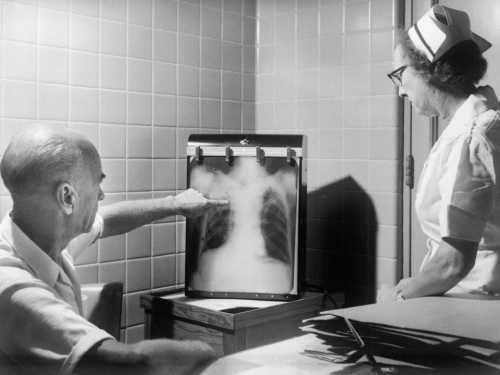WARNING: GRAPHIC CONTENT. At least 78 people have died following the catastrophic blast in the port area in Beirut, Lebanon, on Tuesday, with thousands injured. Survivors have compared the aftermath to the last days of the civil war
-
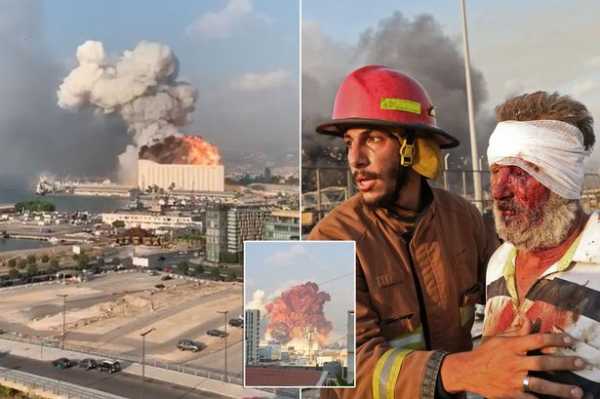
Beirut explosion: What caused deadly blast that killed at least 78 and injured thousands
-

Mirror newsletter – all the biggest stories in one email
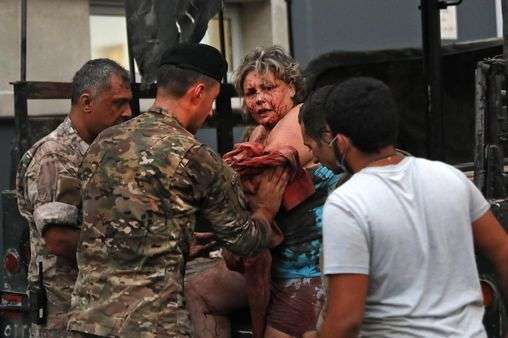
A wounded woman receives help (Image: AFP via Getty Images)
A survivor of the explosion in Beirut, which killed at least 78 and injured thousands, said "I can't believe I'm alive" – as those from the scene recall the devastating blast.
Officials said they expected the death toll to rise further after Tuesday's blast as emergency workers dug through rubble to rescue people and remove the dead.
Footage of the explosion shared by residents on social media showed a column of smoke rising from the port followed by an enormous blast, sending up a white cloud and a fireball into the sky.
Victims were reportedly being taken for treatment outside the city because Beirut hospitals were packed with wounded.
While people were being warned to remain indoors due to the risk of toxic fumes.
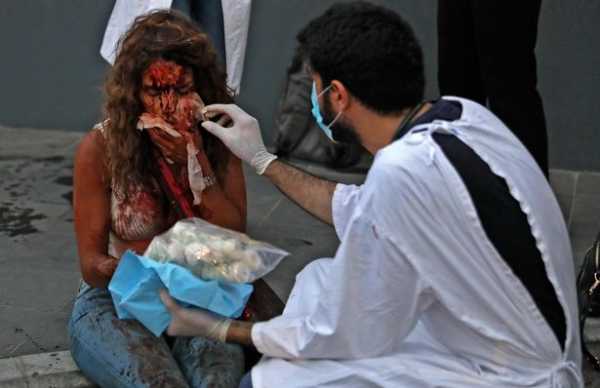
A medic in a mask treats an injured woman, covered in blood
(Image: AFP via Getty Images)
Nada Hamza, a city resident, was in her car parallel to the port when the explosion went off and saw one of the buildings was destroyed.
She desperately tried to contact her parents, she told Aljazeera, adding: "I can't believe I'm still alive."
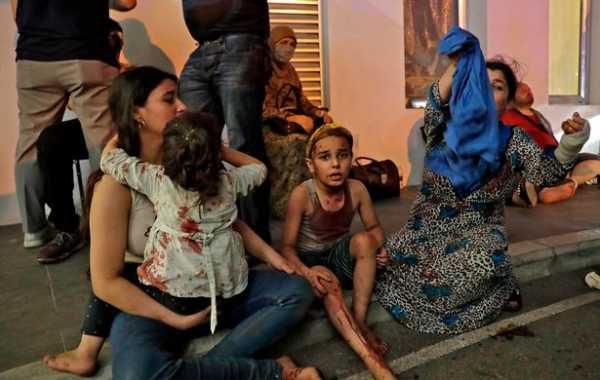
Wounded people, including children, wait to receive help outside a hospital
(Image: AFP via Getty Images)
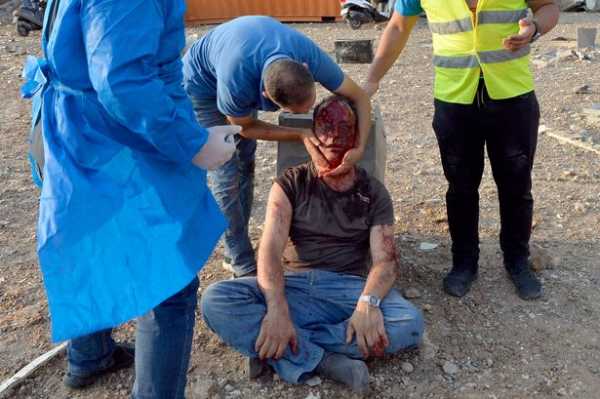
Rescue workers help an injured man at the site of explosion
(Image: WAEL HAMZEH/EPA-EFE/REX/Shutterstock)
Mohamed Khalifeh, a former health minister raced from his home to a nearby hospital to help out.
"I shouted to my family to take care, there's an earthquake – and immediately, everything collapsed," he recalled.
"I narrowly escaped this; I left my family and jumped to the hospital to save lives."
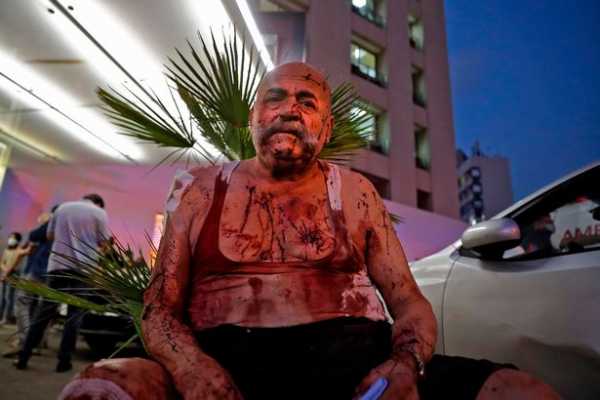
A bloodied survivor of the blast
(Image: AFP via Getty Images)
Khaled Hamade, a former army general, was around half a mile from the blast and said the aftermath reminded him of the last day of the civil war in Beirut.
"There was broken glass all over the streets, and you see many, many injured all over the streets," he said.
While Nasser Yassin, an associate professor at the American University of Beirut, was not in the city at the time but said it felt "nearby".
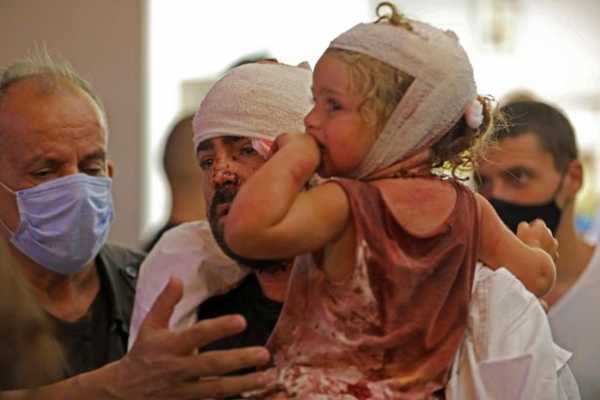
A man and small girl wear head bandages
(Image: AFP via Getty Images)
"This was very massive, I haven't seen this [before]…this is the biggest explosion that happened in Lebanon up to my experience and knowledge," he said.
Hours after the blast, which struck shortly after 6pm, a fire still blazed in the port district, casting an orange glow across the night sky as helicopters hovered and ambulance sirens sounded across the capital.
The Lebanese government said it as still struggling to establish the full scale of the disaster.
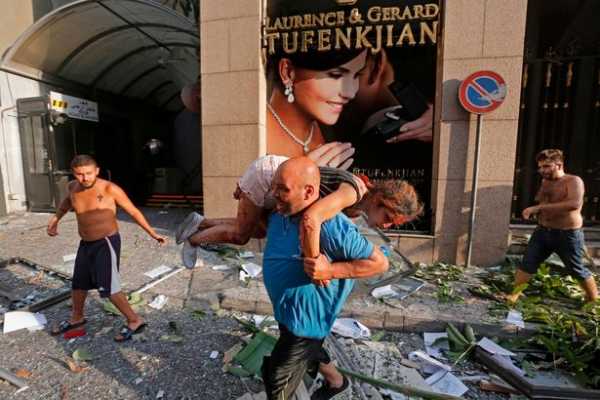
A man carries away an injured girl while walking through debris in the Achrafiyeh district
(Image: AFP via Getty Images)
"There are many people missing. People are asking the emergency department about their loved ones and it is difficult to search at night because there is no electricity," Health Minister Hamad Hasan said.
President Michel Aoun said 2,750 tonnes of ammonium nitrate had been stored for six years at the port without safety measures and said it was "unacceptable".
He called for an emergency cabinet meeting on Wednesday and said a two-week state of emergency should be declared.
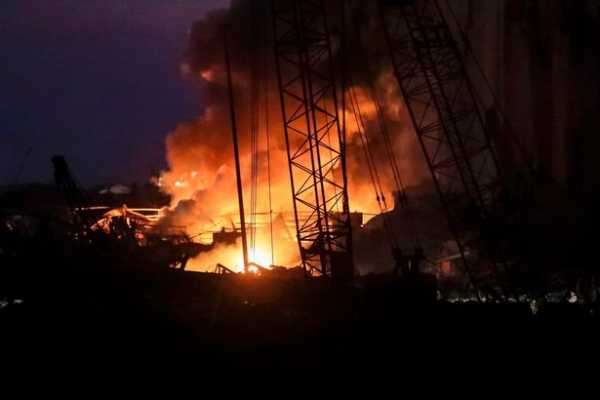
Fires burning at the port of Lebanon's capital Beirut
(Image: AFP via Getty Images)
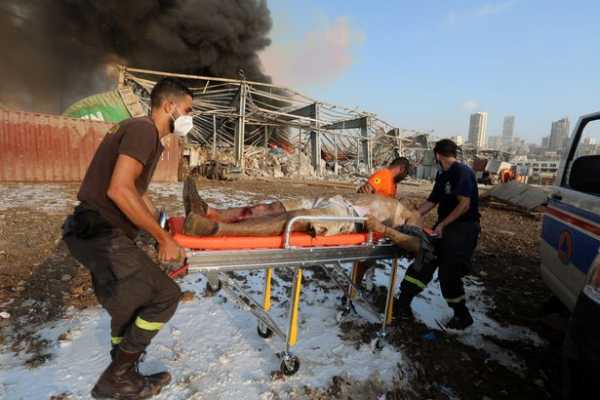
An injured man is transported on a stretcher
(Image: REUTERS)
While Prime Minister Hassan Diab told the nation there would be accountability for the deadly blast at the "dangerous warehouse".
"Those responsible will pay the price," he said in a televised address to the nation, adding that details would be made public.
Officials did not say what caused the initial blaze that set off the blast. A security source and local media said it was started by welding work carried out on a hole in the warehouse.
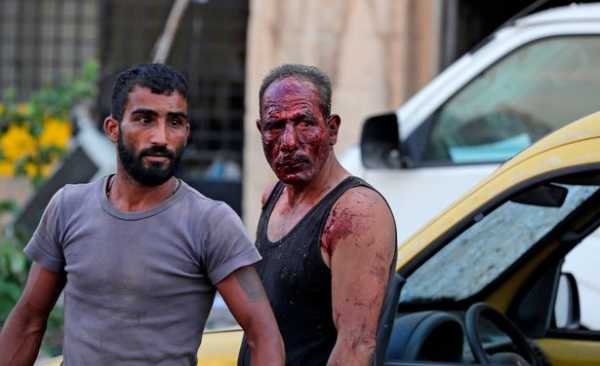
Wounded people walk near the scene of an explosion
(Image: AFP via Getty Images)
While US President Donald Trump has claimed he has been informed by his generals that it was down to a "bomb of some kind".
Israeli officials said Israel, which has fought several wars with Lebanon, had nothing to do with Tuesday's blast and said their country was ready to give humanitarian and medical assistance.
Boris Johnson, meanwhile, has confirmed that British nationals are among those caught up in the aftermath of the incident.
The PM said his government is "ready to provide support in any way we can", and Foreign Secretary Dominic Raab said the UK stands in solidarity with Lebanon.
Sourse: www.mirror.co.uk


